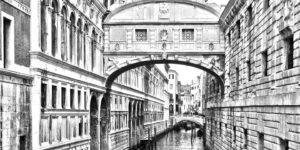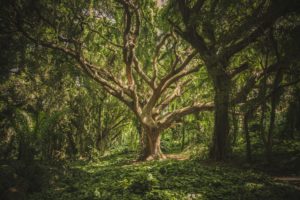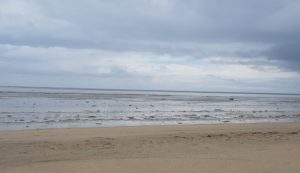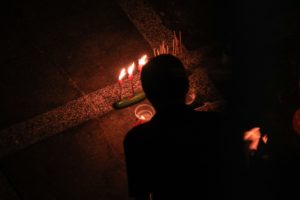INTERVIEWER
Your piece The Land Where Rhodes Fell saw you travel to the grave of Cecil Rhodes and reflect on his legacy. Do you think campaigns such as Rhodes Must Fall can be reconciled with the view of Robert Jenrick, UK Communities Secretary, that statues of such people ‘are almost always best explained and contextualised, not taken and hidden away’?
JEAN
What to do with monuments when they’re no longer monumental? It’s an ongoing dilemma. French cathedrals are lined with stone saints and long-forgotten church fathers, all headless. Decapitating statues was as popular during the French Revolution as guillotining the gentry.
Statues reflect values. That is why they generate such heat.
Yet, if the arc of history bends toward justice – and there is evidence that it does – then we must be willing to reexamine what we choose to memorialize in order to come closer to the mark.
Rhodes earned his pedestal for bringing “Anglo Saxon values” to Africa – and the continent’s wealth back home. To disseminate these values, he built a vast legal apparatus that oppressed millions and set apartheid in motion. These injustices cannot be undone, but they can be rectified.
But – sorry, Secretary Jenrick – a posted placard won’t cut it.
To fully grapple with Rhodes’ legacy, I would argue that tearing down systems that codify inequality – the very ones he set up – is the more important work. That, and returning that enormous wealth to the people from whom it was taken.
All of which is much harder than dickering over a statue and needs more than conservative resolve or revolutionary zeal to accomplish. It requires dialogue, compromise, and empathy. This is the glorious invitation of our moment. How will we respond?
As to Rhodes’ grave hewn into the rocky soul of the country he pillaged – its fate must be determined by the people of Zimbabwe.
Still, symbols matter.
On that point, perhaps the artist Kehinde Wiley has the best response. Use the pompous, monumental forms of triumphal art to raise up every day people, the ones you’d never expect to see sitting astride a rearing horse.
Personally, though, I’d rather just see the horse.
INTERVIEWER
Rhodes Must Fall and its adjacent movements are focussed on redressing crimes from several generations past. But as regards those within living memory, the Spanish writer Javier Marias makes an interesting point: following the death of Franco in 1975, the Fascist government agreed to hand over power on the condition that no one in the regime be held accountable. This was known as the ‘pacto de olvido’ (pact of forgetting). But as in Britain, South Africa and elsewhere, young Spaniards are today keen to redress this period of their history and in 2019, after heated discussions, Franco’s remains were exhumed from the monumental Valley of the Fallen.
Marias argues his compatriots’ motivations are foolish – a misunderstanding of history, which he and many others experienced first-hand – that ‘there is a great incapacity to let the past be the past.’ ‘Everyone accepted [the pact of forgetting] because it was the only way the transition from one system to another could proceed…peacefully’.
I wonder what your response is to Marias as regards atrocities committed within living memory – apartheid would be one example. It’s interesting that Rhodes Must Fall began in Cape Town – could he have been chosen as an easier target, having lived longer ago, compared to more recent members of the former regime?
JEAN
Another softball question, eh? Yes, I think it’s easier and perhaps more strategic to go after a bona fide bad guy like Rhodes. His sins are well documented.
However, by casting our gaze that far back, we accrue another benefit. We protect ourselves from the indulgence of settling scores. I think this is what Marías is alluding to in his comments on the pacto de olvido. The pact gave Spain time to build its democratic muscle and move forward without the purity tests and purges that usually dog transitions of power. The stuttering gait of history has its uses.
Another Marías quote is apropos here, from his book Thus Bad Begins: “The past has a future we never expect.”
How true that is.
South Africa, too, is experiencing this dynamic. When I first visited, in 1995, Nelson Mandela was one year into his presidency. The leader of the resistance now controlled the levers of power, and the pressure was enormous to purge the ranks. Yet Mandela made a different choice. He kept in place many holdovers from the apartheid government. Pragmatically, this allowed him to retain their administrative skills. Symbolically, whites working in and for a majority black government formed an indelible image for the country and the world. The rainbow nation was born.
In 2019, when I returned, the rainbow was bright, but different. Not everyone who followed Mandela had his skill or integrity. And now a new generation is coming into its power. They question the homilies of the past, as is their right. They call bullshit on accepted truths – and even on the lived experience of those who fought for the freedom they inhabit. Thus history lurches forward.
It is also the right and perhaps the obligation of those who lived through atrocities to continue to tell the truth about them. They can summon the nuance, as Marías does in his novels and editorials. He reminds us that the motives of those in power always merit skepticism. These survivors call bullshit on romanticizing the struggles of the past. And they can leave a playbook for the ones to come.
Such contradictions go against our longing for clarity in politics and in life, but they are the heart of the literary enterprise.
INTERVIEWER
It’s interesting that you consider contradictions to be at the heart of the literary enterprise. Is there a writer you admire who particularly exemplifies this, and would you say your own work contains such contradictions?
JEAN
When two things exist simultaneously that cannot both be true – as happens all the time in life – it is good to pause and wonder at them.
I’m thinking of the feral cats I live among here in Greece. My husband and I have been adopted by a small group of them, and they are both tender loving sweethearts and absolute killers. There is a deep truth in that combination.
It may not surprise you, given my penchant for erratic clauses and extended sentences, that I admire capacious 19th century novels. I love the latitude they give themselves to chase ideas around. In particular, Charles Dickens. While he can be cloyingly sentimental and annoyingly strident in his presentation of good and evil, I find Dickens is a keen observer of contradiction, especially in his secondary and tertiary characters. So, for example, the thief Fagin in Oliver Twist is sympathetic, despite the illegality of his profession, whereas those officially sanctioned to care for the orphan Oliver do not fare so well. Similarly, Mrs. Jellyby, in Bleak House, my all time top novel, is forever organizing good works for far away children, while neglecting her own. Dickens’ moral compass may be simplistic, but you could find a worse measure to judge someone by than how well they treat a child.
I also think of Robert Stone, who I was fortunate to work with early in my writing career. His story Miserere is a bravura study in contradiction, and as was his particular genius, he follows its thread relentlessly. He compared a story to a pitch, as in American baseball. Launch it with confidence, and go where it takes you – usually a place you don’t want to see.
In my own work, I experience contradiction as a kind of divining rod. When I feel it jerk, I know I’ve found a subject to plumb. For the piece on Rhodes’ grave, what caught my attention was how this man, who disenfranchised millions of people, chose to be buried in the place most sacred to them. In that gesture, I see his pompous grandiosity and oblivious entitlement, but also his genuine feeling for the majesty of the land. That is a contradiction worth grappling with.
INTERVIEWER
You moved from the US to Greece before the pandemic, which must have made the past year particularly isolating. How has this affected your writing, before and since Covid?
JEAN
You know, isolation was part of the plan in coming to Greece, so while Covid certainly put a crimp in things, its impact has not been entirely negative.
My husband and I moved here for a quieter life. In between swims, I wanted to focus on my writing and on wildlife conservation work. He wanted to smoke his pipe, read his books on Romanesque architecture, and perfect his already amazing cooking skills. It’s been peacefully productive so far.
In addition to the two nonfiction pieces that Moxy has published (thank you!), I finished a novel that my agent, Lukas Ortiz, is handling, and am half way through the draft of another. Lest you think I’ve abandoned nonfiction, I am writing about my grandfather, Art Shields, who wore the sobriquet “Labor’s Great Reporter” with pride. He was a reporter for the Daily Worker, and a union organizer who fought for social justice his entire life. He was also a merciless chess player, a lover of Arthur Conan Doyle stories, and an ocean swimmer like me.
And, because I’m slightly insane, I’ve started an online publication called Certain Age. I got tired of how-to articles, with their relentless optimism. As if, if we just did everything right, everything would be all right. Silly humans. I longed for juicy ideas, strong opinions, messy wrong-turns, entertaining travelogues, and the odd cocktail recipe – as seen through the female lens. So that’s what I’m building over there.
My “day job” is leading communications for an NGO focused on protecting Africa’s great apes and monkeys. It is fascinating work that keeps me connected to Africa, and it’s peopled with a host of remarkable characters. Bringing these stories to a wider audience is a privilege.
I’m incredibly curious to see what emerges in this pandemic-adjacent era. But here in the Peloponnese, the kafenios are finally open and the coffee demands attention. The weather is warming. The sea is calling. I think it’s time to swim.
Jean was interviewed by Christina Fleischer. Click here to read her piece The Land Where Rhodes Fell, and here to read her contribution to Summer 20.









